Experiences :: Attending ICRA 2024!
General Overview
ICRA 2024 brought together world’s best Robotics research and researchers together and enabled knowledge exchange, science communication, and sharing of the latest research in several sub-fields of robotics. As a Master’s student enhancing legged locomotion research using learning-based methods for challenging terrains, it was a pleasure to witness latest updates on the ongoing work in the field of Legged Robotics, Reinforcement Learning, and a popular emerging topic in the field: loco-manipulation. Other important topics included Sim2Real Transfer, and Risk-Aware locomotion.
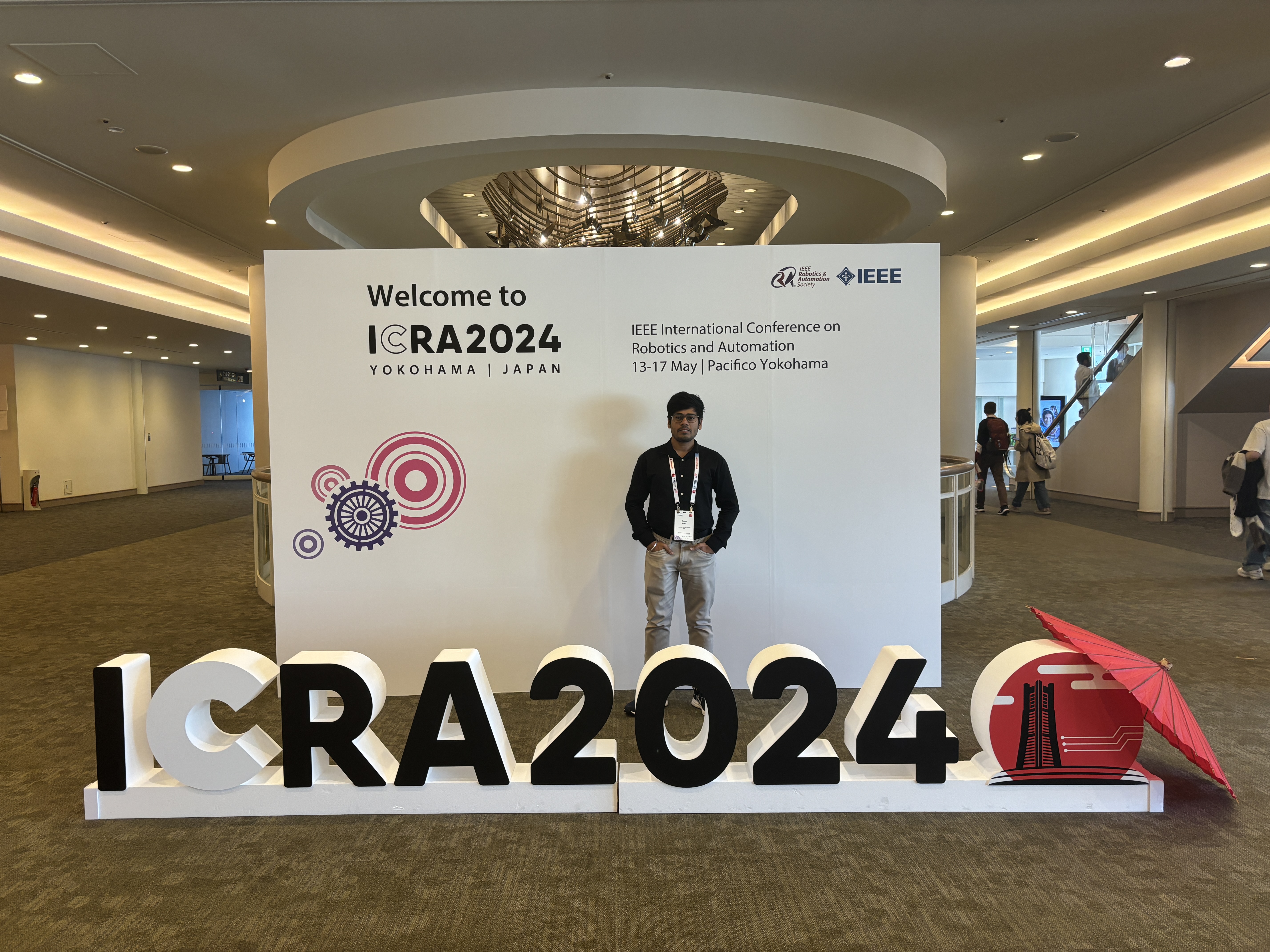
Exhibitions
Several robotics companies, like Boston Dynamics, Unitree, ANYbotics, Honda, DEEP Robotics, etc. from around the world set-up their booths at the exhibition hall in the exceptional ICRA venue at Pacifico Yokohama. One of the most popular and interesting product launches was that of Unitree’s new humanoid robot, called Unitree G1 on the first day of this exhibition. The demonstrations done by the companies, exhibited some the exceptional control, design, and operational capabilities of the current robotic products.
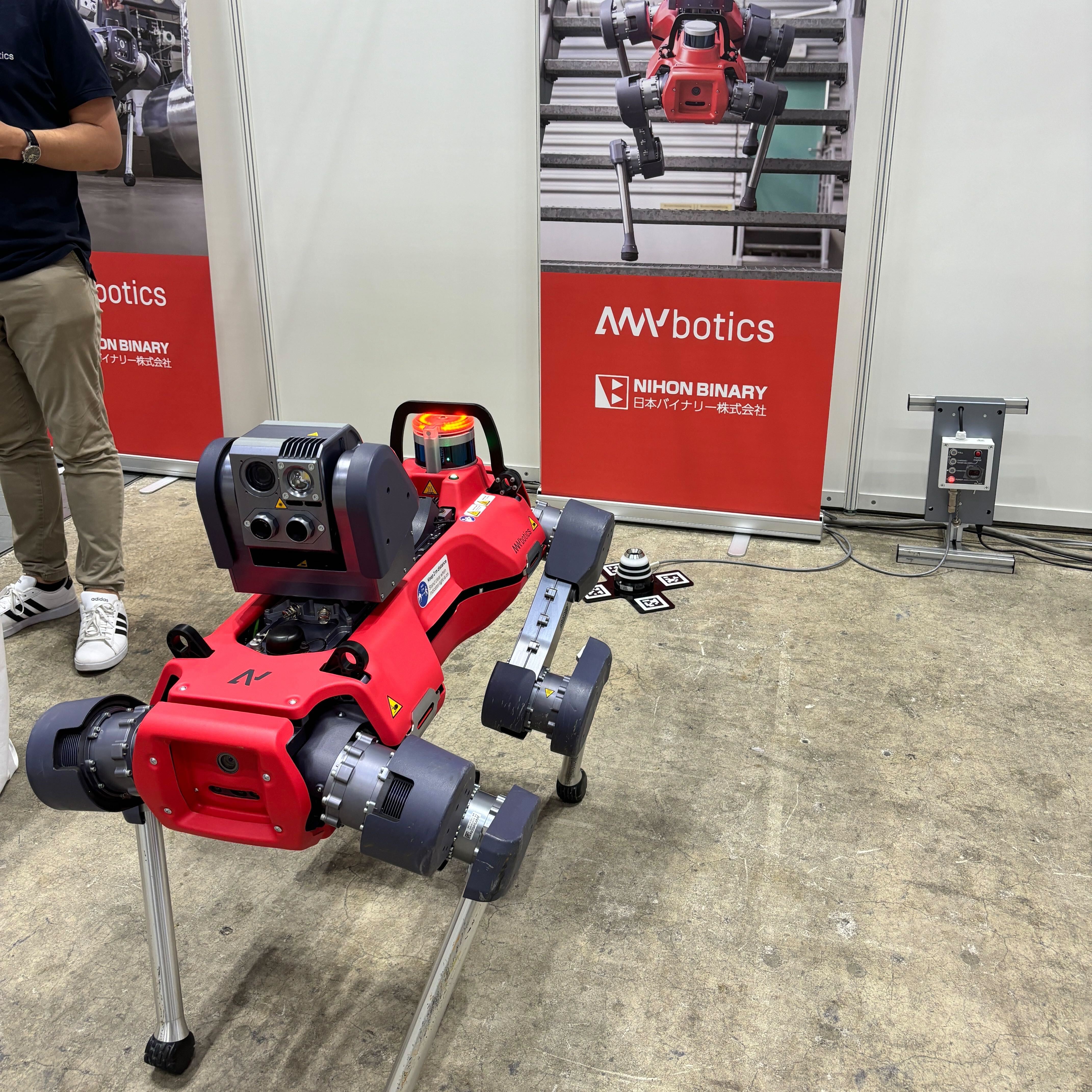
ANYbotics
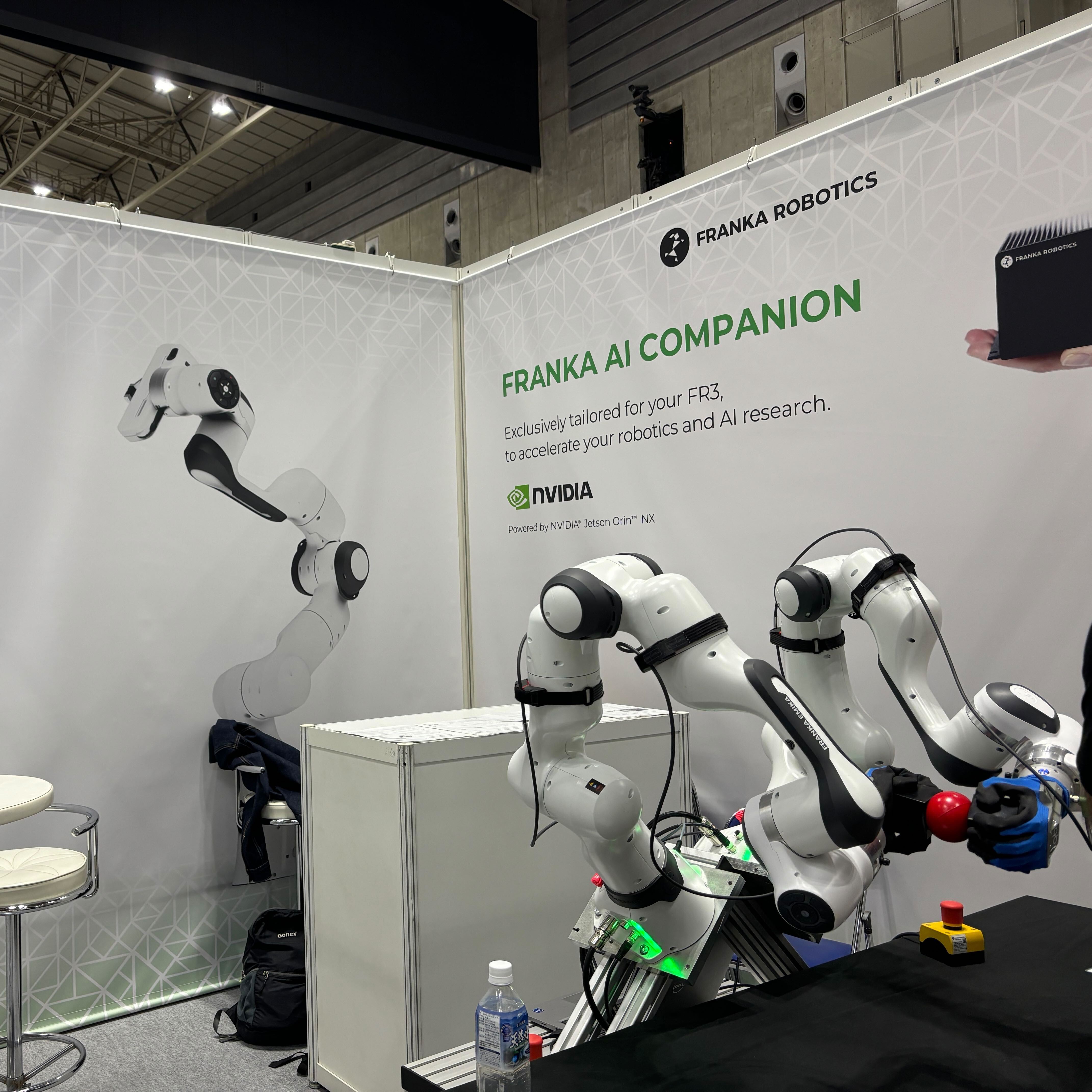
Franka
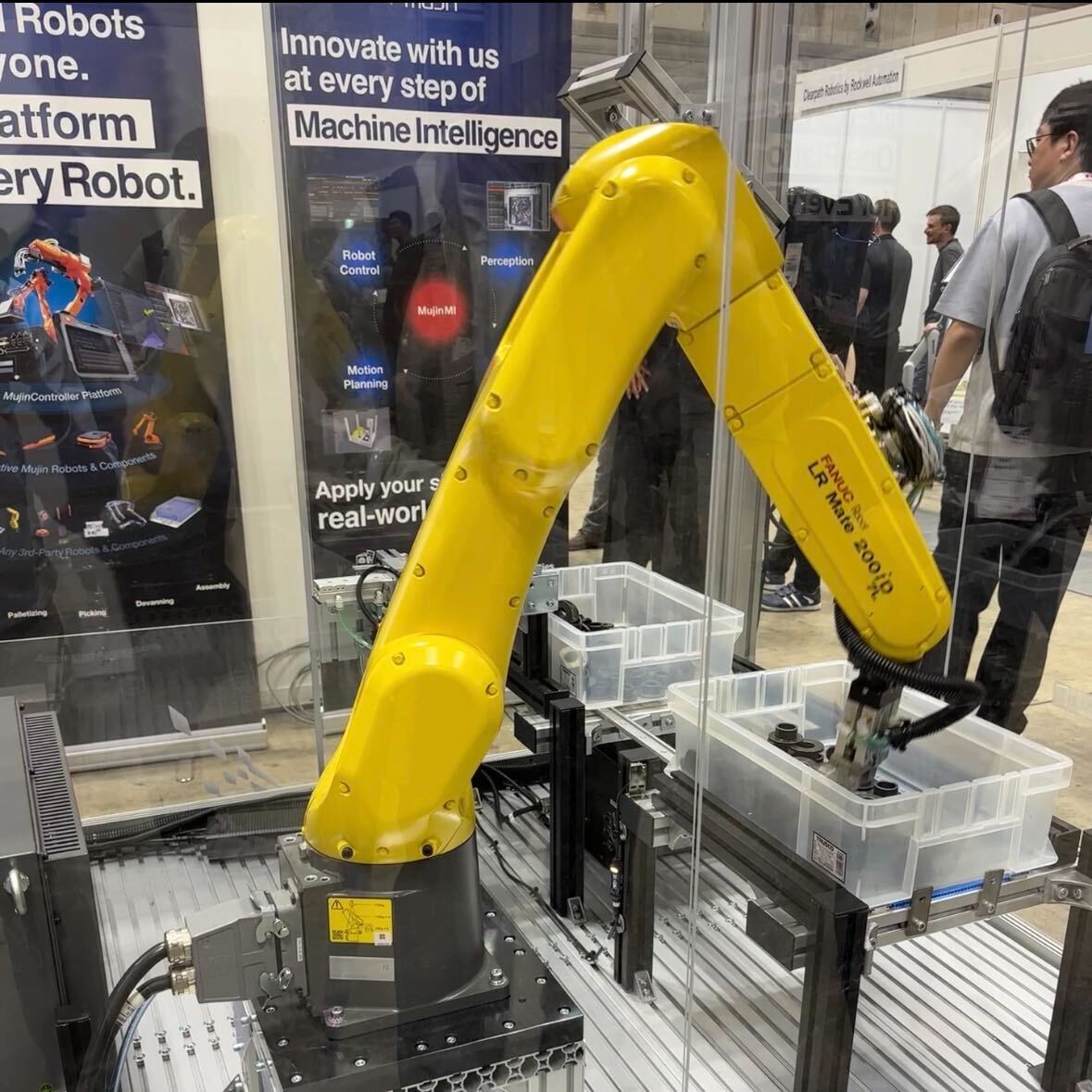
FANUC
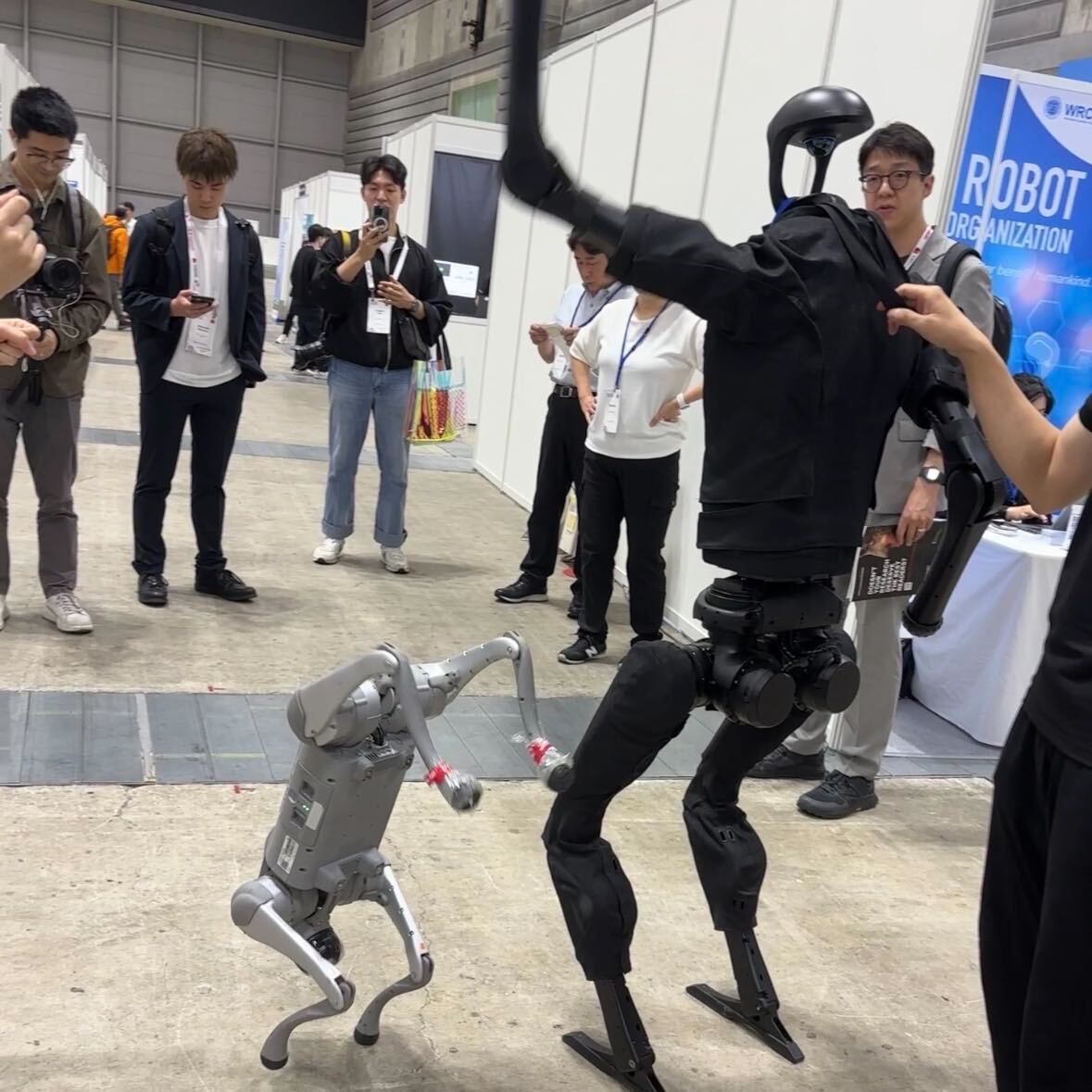
Unitree
ANYbotics Global Meet up at ICRA 2024
This meet-up of top researchers in the field of Quadruped Robotics, including researchers and labs utilizing the ANYmal and other quadruped robots was the first in Japan. The talks presented mainly focused on the utilization of the the ANYmal quadruped Robot in different research projects ongoing in labs at the University of Oxford, TU Graz, Austria and ETH Zurich.
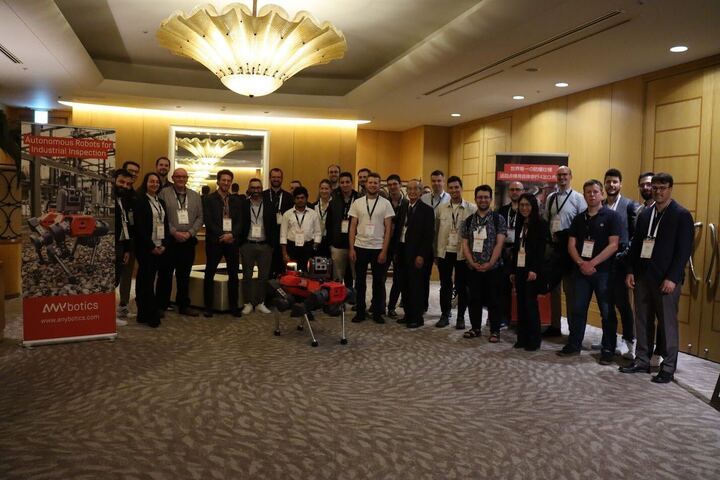
Workshops Attended: Monday, May 13
Agile Robotics: From Perception to Dynamic Action:
The Agile Robotics Workshop focused on enabling agile behaviors on the commonly available robot platforms to demonstrate the capabilities of such robots to demonstrate more human-like dexterous behaviors. It stressed on an integrated approach that combines classical control and learning methods, or perception and low-level control to achieve such behaviors. Some of the most interesting talks are listed below:
- Deepak Pathak: Rethinking Reinforcement Learning for Extremely Agile and Dynamic Robotic Control
- Quan Nguyen: Hierarchical Optimization-base Control for Agile Legged Robots
- Pulkit Agrawal: Dynamic, Dexterous and Purposeful Robotic Control
- Jemin Hwangbo: Dynamic Legged Locomotion and Manipulation
General Key Learnings:
- The talk “Rethinking RL for Extremely Agile and Dynamic Robotics Control” highlighted a few main issues, for instance:
- Generalizing over broader scenarios with a single policy is difficult and the model-free training processes start the exploration from scratch.
- Some highly successful approaches like “Rapid Motor Adaptation (RMA)” might not be successful for complex tasks like “robot parkour”.
- An important term in the talk was “Affordance Learning” - where ‘affordance’ would mean in general the effect produced upon an action done towards an object. Then, affordance learning would mean learning a model that can effectively predict the effect that an action will create in a given context. In the current research:
- The tasks performed by the agents are fixed however the environments among which the agents can function are varied.
- The recent shift in this paradigm has enabled more focus on “generalist” agents - agents that can generalize across tasks instead.
- One of the proposed solutions to aid in this task-generalized behavior was to extract ‘priors’ (or affordances) from online videos (from YouTube) of humans in different scenarios for training - learning by watching or observation learning.
- One of the other talks titled “Hierarchical Optimization-base Control for Agile Legged Robots” focused on three key areas: utilization and comparison of MPC (Model Predictive Control), TO (Trajectory Optimization) and RL-Augmented MPC (combining RL and MPC which leads to improved robustness and agility of blind legged locomotion).
- On the other hand, the talk “Dynamic Legged Locomotion and Manipulation” proposed a hierarchical control strategy that, by capturing manipulation-relevant information from robot-object interactions, proprioception, and action history, can achieve successful manipulation of heavy objects using the robot’s entire body. Moreover, another approach proposed a novel reinforcement learning framework which not only takes into account the rewards but also the constraints. This approach led to efficient and performant controllers with significantly less reward engineering and tuning.
Workshop on Field Robotics
With the wide applications of field robots - be it in the field of planetary exploration, construction, agriculture, or military operations, field robotics has been of great interest for robotics researchers. The talk “Keynote - Overview of the Last 20 Years in Field Robotics” given by Sanjiv Singh summarized the evolution of the field and its application over the last 20 years. Some takeaway points were:
- In the area of Disaster Response, we now have better low-level control and dynamics, however mostly we are still reliant more on teleoperation given the safety and reliability.
- For space-exploration, advancements have been made in precision landing, long-term odometry, planetary flights, scouting for ground rovers, etc.
- We now commonly witness self-driving cars and trucks on roads, and the development has been highly influenced by the developments in sensing, much more than in computing, which has mostly followed Moore’s law.
Workshops Attended: Friday, May 17
Loco-Manipulation: Algorithms, Challenges & Applications
- Pulkit Agrawal: Towards Whole-body Dexterous Manipulation
- Spotlight Talks #1 - Victor Klemm: ‘Pedipulation’
Key Learnings:
- The impressive paper titled “Learning Force Control for Legged Manipulation” proposed a method for training RL policies for direct force-control without requiring access to direct force sensing by modeling how the robot’s actions result in applied forces when it makes contact with the environment. This led to a learned whole-body force control in legged manipulators.
- From ETH Zurich, the recently coined term “Pedipulation” (Enabling manipulation skills using a quadruped robot’s leg) - essentially by tracking position targets for one foot, was talked about as well.
Workshop on Resilient Off-road Autonomy
The workshop was focused on the field of off-road autonomy, with applications in various industries including search and rescue, construction, agriculture, or military operations. The talks in the workshops addressed the challenges in the on-field operations and deployments of such robots given the dynamic nature of the environments they operate in, and the methods that have been developed, be it terms of software stacks, traversability, planning, domain adaptation, perception, etc.
One of the key highlights was the talk by Marco Hutter: “Autonomous legged navigation: From structured to unstructured environments” which summarized the latest legged robot autonomy research: Global and Local Planning, Path Following, and RL-based locomotion controllers, done at ETH Zurich.